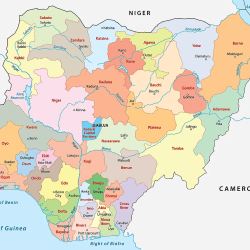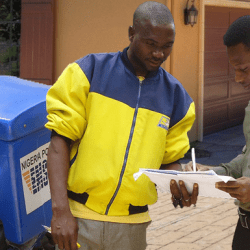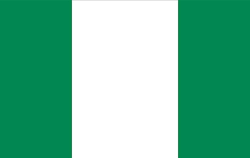23401 is not the ZIP code for Nigeria. +234 is the International Dialing code for Nigeria.
The Zip code 23401 belongs to Keller, a city in Virginia, United States.
Postal code, postcode and ZIP code
Postal code, postcode
Postal code also known as postcode is a group of characters meant to help post offices send mails and parcels to the right destinations.
The code is usually part of a postal address.
ZIP code
Postal codes are also known as ZIP codes. The term ZIP code is often used in US.
ZIP being the short form of
Z: Zone
I: Improvement
P: Plan code
ZIP code is a system of postal codes used by the United States Postal Service (USPS).
Introduced on July 1, 1963, the basic format consisted of five digits. In 1983, an extended code was introduced, called ZIP+4 ; it included the five digits of the ZIP code, followed by a hyphen and four digits that designated a more specific location.
US delivery system uses a ZIP code for the items shipped to and from overseas and within the country.
Nigeria postal codes
The Nigeria postal codes are of use not only for post offices but also for delivery companies and any person that wants to locate an area for parcel delivery or other purposes.
Postal codes enable delivery companies send parcels to correct destinations easier and faster.
Nigeria postal codes consists of six digits.

NIPOST (Nigerian Postal Service) divides the country into nine regions which make up the first digit of the code. The second and third digits, combined with the first, are the dispatch district for outgoing sorting. The last three digits represent the delivery location. A delivery location can be any of the following; a post office facility, a rural area, or an urban area.
The total postal codes of Nigeria are 982,112 ranging from 100001 to 982112 (Lagos to Benue).
The lowest postal code in Nigeria is 100001, Ikeja in Lagos and the highest is 982112, Mbara, Vandeikya in Benue State.
The main post office or postal head office in each region will has a postal code ending in 0001, so Garki head office in Abuja has the postal code 900001, Ikeja head office in Lagos has 100001, Lokoja in Kogi has 270001 and Port Harcourt has 500001.
Postal codes of Nigeria States
| State | Postal code |
| Abia | 440001 |
| Adamawa | 640001 |
| Akwa Ibom | 520001 |
| Anambra | 420001 |
| Bauchi | 740001 |
| Bayelsa | 561001 |
| Benue | 970001 |
| Borno | 600001 |
| Cross River | 540001 |
| Delta | 320001 |
| Ebonyi | 840001 |
| Edo | 300001 |
| Ekiti | 360001 |
| Enugu | 400001 |
| Gombe | 760001 |
| Imo | 460001 |
| Jigawa | 720001 |
| Kaduna | 700001 |
| Kano | 800001 |
| Katsina | 820001 |
| Kebbi | 860001 |
| Kogi | 260001 |
| Kwara | 240001 |
| Lagos | 100001 |
| Nasarawa | 962001 |
| Niger | 920001 |
| Ogun | 110001 |
| Ondo | 340001 |
| Osun | 230001 |
| Oyo | 200001 |
| Plateau | 930001 |
| Rivers | 500001 |
| Sokoto | 840001 |
| Taraba | 660001 |
| Yobe | 320001 |
| Zamfara | 860001 |
| FCT | 900001 |
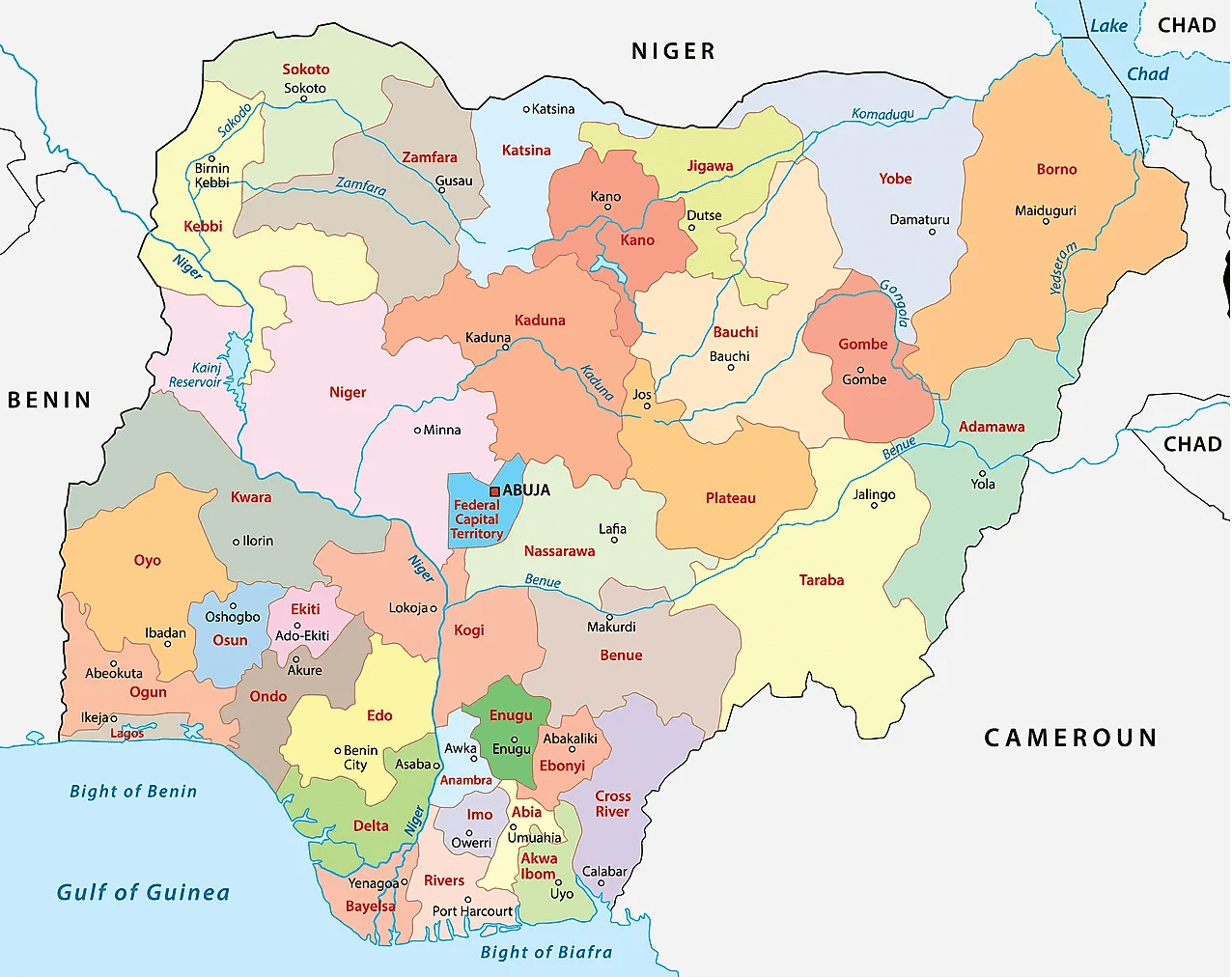
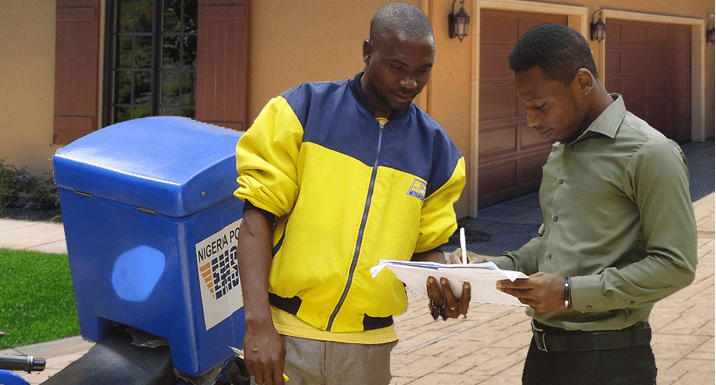



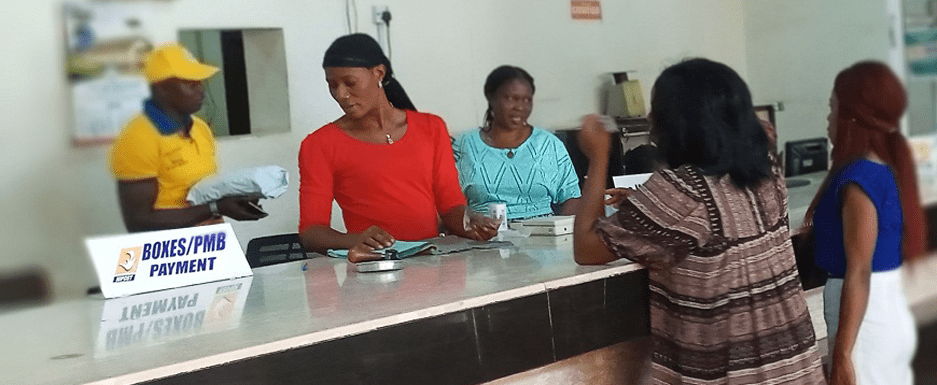

Nigeria
Nigeria is a country in Africa, a regional power on the continent and an emerging power on the international scene.

It has 36 states and a Federal Capital Territory, Abuja.
Having being divided into states, the country is further divided into 774 Local Government Areas (LGAs).
The LGAs are under the control of their respective states.
The country has the largest economy in Africa.
Nigeria’s population is over 230 million, making it number 1 most populated country in Africa, and number 6 in the world.

It covers an area of 923,769 square kilometres (356,669 sq mi).
It is situated between the Sahel to the north and the Gulf of Guinea to the south in the Atlantic Ocean.

Nigeria borders Niger in the north, Chad in the northeast, Cameroon in the east, and Benin in the west.
It is often referred to as the Giant of Africa owing to its large population and economy and is considered to be an emerging market by the World Bank.

However, the country ranks very low in the Human Development Index and remains one of the most corrupt nations in the world.

The largest city in Nigeria is Lagos, one of the largest metropolitan areas in the world and the largest in Africa.

Nigeria is a multinational state inhabited by more than 250 ethnic groups speaking 500 distinct languages, all identifying with a wide variety of cultures.
The official language is English, chosen to facilitate linguistic unity at the national level.
Nigeria is a founding member of AU (African Union) and a member of other international organizations including UN (United Nations), Commonwealth of Nations and ECOWAS (Economic Community of West African States).

